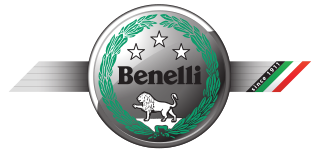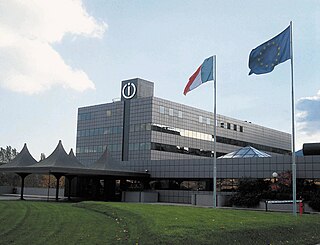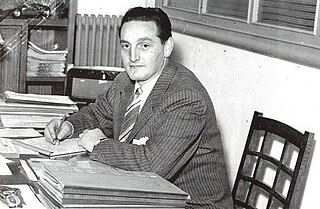
Made in Italy is a merchandise mark indicating that a product is all planned, manufactured and packed in Italy, [1] especially concerning the design, fashion, food, manufacturing, craftsmanship, and engineering industries.

Made in Italy is a merchandise mark indicating that a product is all planned, manufactured and packed in Italy, [1] especially concerning the design, fashion, food, manufacturing, craftsmanship, and engineering industries.

Made in Italy brand has been used since 1980 to indicate the international uniqueness of Italy in four traditional industries: fashion, food, furniture and mechanical engineering (automobiles, industrial design, machineries and shipbuilding), in Italian also known as "Four A", Abbigliamento (clothes), Agroalimentare (food), Arredamento (furniture) and Automobili (automobiles). Italian products have often been associated with quality, high specialization and differentiation, elegance, and strong links to experienced and famous Italian industrial districts often connected with the concept of luxury. [2] Since 1999, Made in Italy has begun to be protected by associations such as Istituto per la Tutela dei Produttori Italiani (Institute for the Protection of the Italian Manufacturers) and regulated by the Gucci company to the Italian government. [3] [4]
In recent times the merchandise mark Made in Italy has become decisive for Italian exports and so common worldwide to be often considered as a separate product category. In January 2014, Google Cultural Institute, in collaboration with the Italian government and the Italian Chamber of Commerce, launched an online project aimed to promote Made in Italy by using virtual showrooms about several famous Italian products. [5]
In 2009, the Italian law 135 [6] stated that only products totally made in Italy (planning, manufacturing and packaging) are allowed to use the labels 100% Made in Italy, 100% Italia, tutto italiano in every language, with or without the flag of Italy. Each abuse is punished by the Italian law. [7]
Compared with "Made in Germany" ('all essential manufacturing steps') and "Made in the USA" ('all or virtually all'), Italian regulation is more restrictive ('totally') in determining what qualifies for the use of the "Made in Italy" label. [8]
Trademark Made in Italy doesn't regulate the use of the words "Made in Italy". For that only the last substantial transformation or processing is considered according to Law n. 350/2003. [9] [10]





Economists and business analysts have identified five companies in particular whose names are closely associated with Made in Italy:

Giovanni Michelotti was one of the most prolific designers of sports cars in the 20th century. His notable contributions were for Ferrari, Lancia, Maserati and Triumph marques. He was also associated with truck designs for Leyland Motors, and with designs for British Leyland after the merger of Leyland and BMC.

Benelli Q.J. is an Italian company, based in the city of Pesaro in the Marche region, that produces motorcycles and scooters.

The Volkswagen Karmann Ghia are a family of three overlapping sporty Volkswagen model series, marketed in 2+2 coupe (1955–1975) and 2+2 convertible (1957–1975) body styles, though German production ended one year before that in Brazil. Internally designated the Type 14 (1955–1975), the Type 34 (1962–1969), and the Type 145 TC, the Karmann Ghia cars combined the floorpans and mechanicals of the Type 1 / Beetle or Type 3 'ponton' models with styling by Italy's Carrozzeria Ghia, and hand-built bodywork by German coachbuilding house Karmann.

Carrozzeria Ghia SpA is an Italian automobile design and coachbuilding firm, established by Giacinto Ghia and Gariglio as "Carrozzeria Ghia & Gariglio". The headquarters are located at Corso Guglielmo Marconi, 4, Turin. The company is currently owned by Ford Motor Company and focused on the European market through Ford's subsidiary in the region.

De Tomaso Automobili Ltd. is an Italian car-manufacturing company. It was founded 1959 by Alejandro de Tomaso in Modena. It originally produced various sports prototypes and auto racing vehicles, including a Formula One car for Frank Williams Racing Cars in 1970. Most of the funding for the automaker came from Amory Haskell Jr.

Whirlpool Corporation is an American multinational manufacturer and marketer of home appliances headquartered in Benton Charter Township, Michigan, United States. The Fortune 500 company has annual revenue of approximately $21 billion, 78,000 employees, and more than 70 manufacturing and technology research centers globally.

The automotive industry in Italy is a quite large employer in the country, it had over 2,131 firms and employed almost 250,000 people in 2006. Italy's automotive industry is best known for its automobile designs and small city cars, sports and supercars. The automotive industry makes a contribution of 8.5% to Italian GDP.

Indesit Company is an Italian company based in Fabriano, Ancona. It is one of the leading European manufacturers and distributors of major domestic appliances. It claims to be the undisputed leader in major markets such as Italy, the UK and Russia. Founded in 1975 and listed on the Milan stock exchange since 1987, the group posted sales of €2.7 billion in 2013. It has eight industrial areas in Italy, Poland, the UK, Russia and Turkey, and 16,000 employees. Since 2014 the majority of the company is owned by the American company Whirlpool.

The Hudson Italia is an automobile styling study and a limited production two-door compact coupé that was produced by the Hudson Motor Car Company of Detroit, Michigan, in cooperation with Carrozzeria Touring of Italy, and subsequently marketed by American Motors Corporation (AMC) during the 1954 and 1955 model years.

The Fiat 2300 is a six-cylinder executive car which was produced by Italian automotive manufacturer Fiat between 1961 and 1968. The 2300 was made as saloon, estate car and coupé. The 2300 saloon is noteworthy as in 1966 it became the first Fiat model to be available with an automatic transmission.

Luigi "Gigi" Segre was an Italian automotive designer noted for his business and engineering acumen during his stewardship and ownership of Carrozzeria Ghia (1953–63), one of an Italy's premier automobile design and coachbuilders.

Nicola Romeo was an Italian engineer and entrepreneur mostly known for founding the car manufacturer Alfa Romeo. He served as a senator in the 18th Legislature of the Kingdom of Italy.

Eleonora Lo Bianco is an Italian volleyball player.

Fabbrica Candele Accumulatori Maserati S.p.A. was an Italian manufacturer of motoring components, as well as mopeds and motorcycles. It was part of Adolfo Orsi's large industrial corporation, that was divided among siblings (1953). His sister Ida Orsi received over the component branch that was not doing well at the time. By purchasing the Bologna-based motorcycle manufacturer Italmoto (1953), the company entered a new market and sold well locally and had an export line to South Africa, Europe and North America as well. The products were allowed to continue the use of the well-known Maserati name and the company's trident trademark.
Alessandra Facchinetti is an Italian fashion designer who is known for her work as creative director at Gucci (2004–2005), Valentino (2008–2010) and Tod's (2013–2016).

Andrea Guerra is an Italian businessman who presently is the CEO of Prada, a position he has held since 2023.

Carrozzeria Barbi is an Italian bus manufacturer, with headquarters in Mirandola, near Modena.
Balsamic vinegar of Modena is a variety of balsamic vinegar and a PGI condiment from Italy. It is produced according to various recipes. The PGI production regulations leave plenty of leeway, allowing the use of grape must in percentages between 20 and 90% and wine vinegar between 10 and 80%. The use of caramel is allowed, up to 2%. Reading the tag can provide useful information on the ingredients used and the processing methods. Withdrawal and refilling, as used in making Traditional Balsamic Vinegar, are not used; the ingredients, once mixed, must be kept in wood containers for a duration of at least 60 days. If the product is kept there for 3 years or more it is labeled "invecchiato" (aged). The Balsamic vinegar of Modena gained the PGI label on 3 July 2009. The requirements for the much more expensive PDO Traditional Balsamic Vinegar are different and more restrictive; it must contain only grape must and be aged for at least 12 years.

Granarolo S.p.A. is a food company in Italy founded in 1957 and based in Bologna. It operates in the fresh milk and dairy-cheese sector, dry pasta, deli meats and vegetable foods.
{{cite web}}: CS1 maint: archived copy as title (link) Il Made in Italy nel nuovo mondo, Protagonisti, Sfide, Azioni by Marco Fortis. Ministero delle Attività Produttive